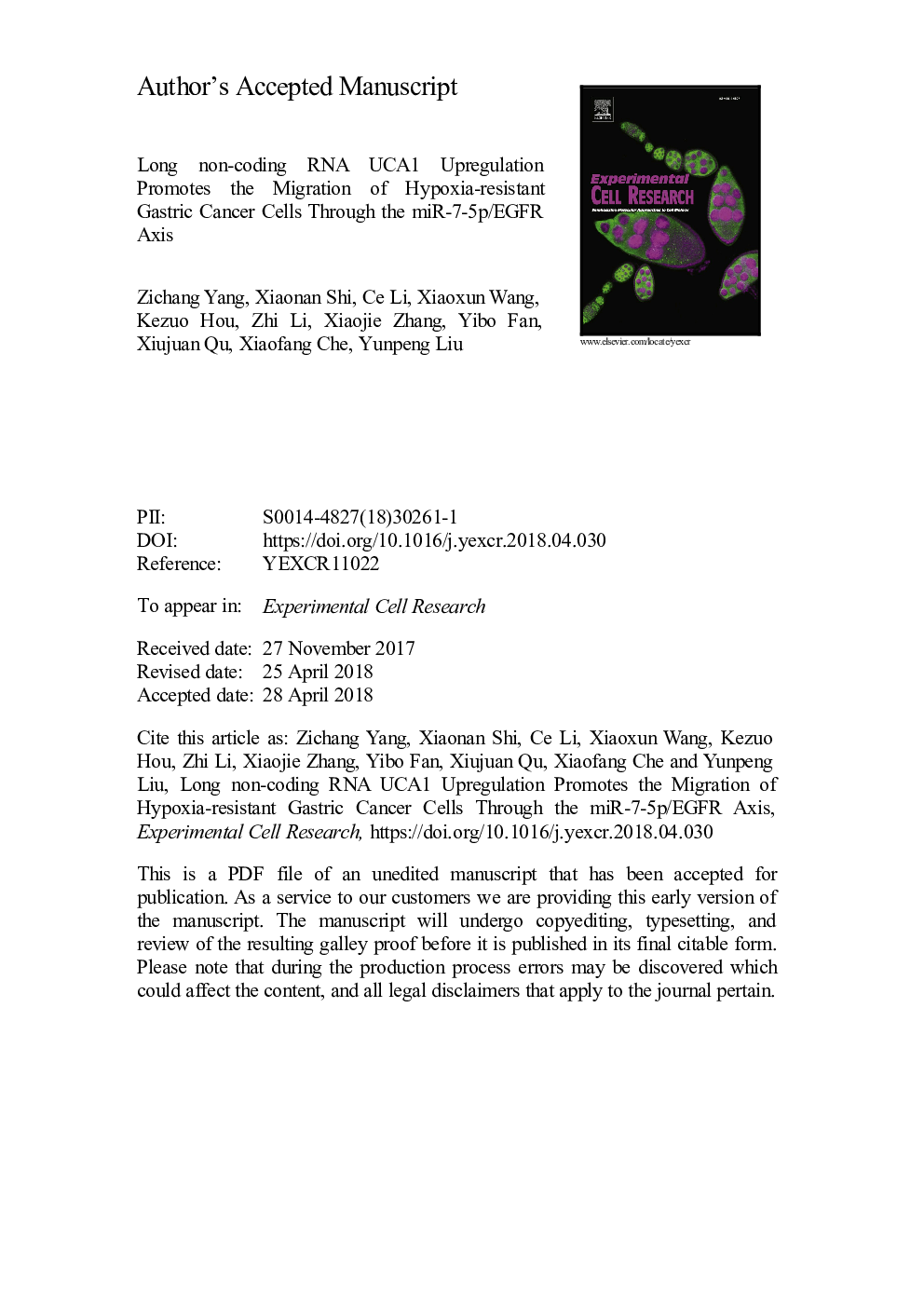| Article ID | Journal | Published Year | Pages | File Type |
|---|---|---|---|---|
| 8450491 | Experimental Cell Research | 2018 | 23 Pages |
Abstract
A variety of solid tumors are surrounded by a hypoxic microenvironment, which is known to be associated with high metastatic capability and resistance to various clinical therapies, contributing to a poor survival rate for cancer patients. Although the majority of previous studies on tumor-associated hypoxia have focused on acute hypoxia, chronic hypoxia more closely mimics the actual hypoxic microenvironment of a tumor. In this study, two novel hypoxia-resistant gastric cancer (HRGC) cell lines which could grow normally in 2% oxygen were established. The long non-coding RNA UCA1 was upregulated in HRGC cells, which promoted their migration. Bioinformatics analysis and a luciferase reporter assay showed that miR-7-5p could bind to specific sites of UCA1 to regulate the target EGFR through competitive endogenous RNA function. UCA1 directly interacted with miR-7-5p and decreased the binding of miR-7-5p to the EGFR 3â²-untranslated region, which suppressed the degradation of EGFR mRNA by miR-7-5p. Therefore, long-term hypoxia induced UCA1 to promote cell migration by enhancing the expression of EGFR. This study thus reveals a new mechanism by which a hypoxic microenvironment promotes tumor metastasis, and highlights UCA1 as a potential biomarker for predicting the metastasis of gastric cancer to guide clinical treatment.
Keywords
Related Topics
Life Sciences
Biochemistry, Genetics and Molecular Biology
Cancer Research
Authors
Zichang Yang, Xiaonan Shi, Ce Li, Xiaoxun Wang, Kezuo Hou, Zhi Li, Xiaojie Zhang, Yibo Fan, Xiujuan Qu, Xiaofang Che, Yunpeng Liu,
